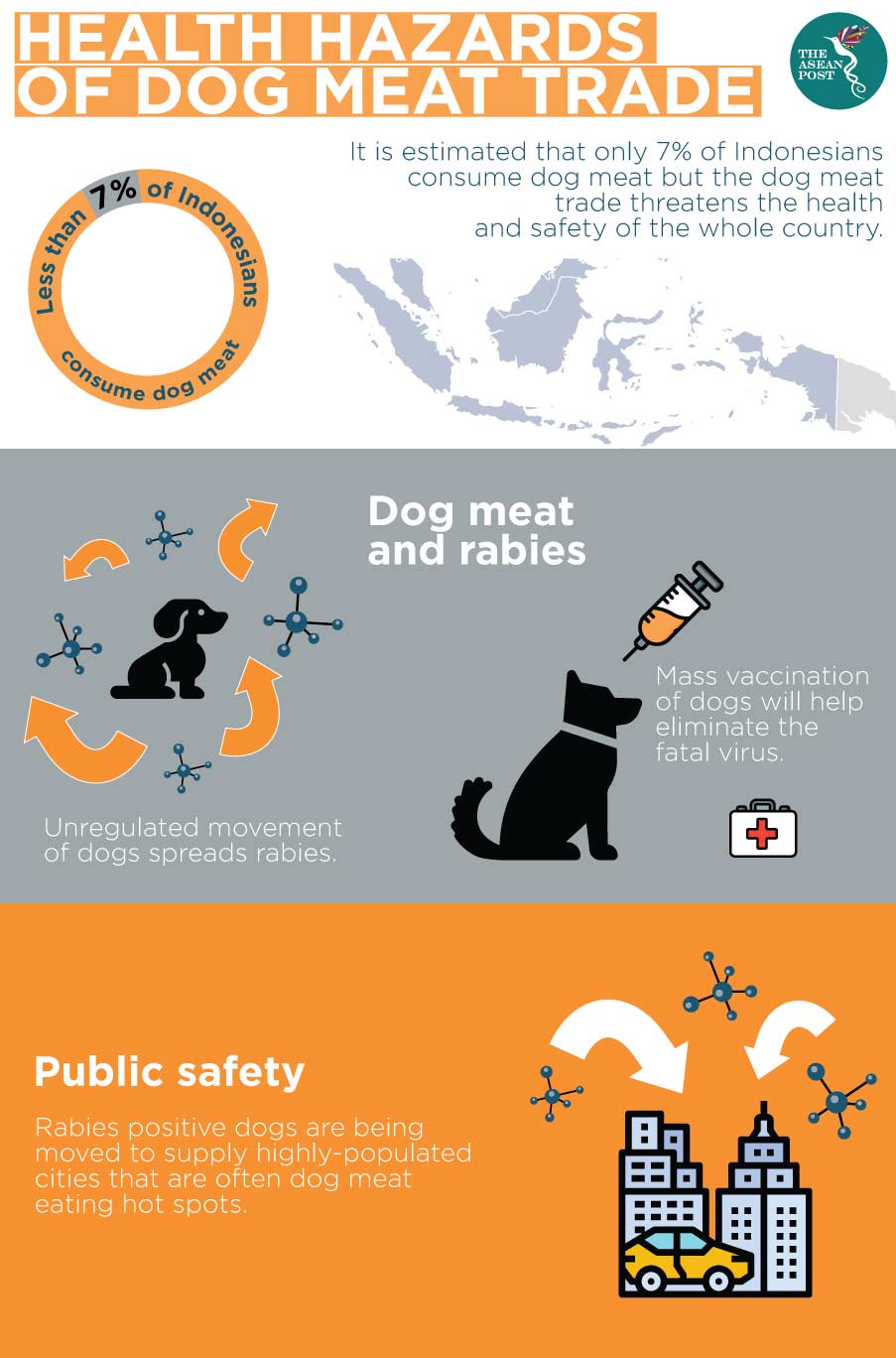Earlier this week, investigators for the Dog Meat Free Indonesia (DMFI) campaign revealed heart-breaking footage exposing the extreme cruelty suffered by an estimated 13,700 dogs every month in the Indonesian city of Solo. The dogs being shown on camera were heading to the slaughterhouse for their meat.
News of the footage quickly went viral. The investigators found that dogs were being slaughtered in unhygienic conditions and were being killed in front of other dogs. According to activists, the act served to unnecessarily increase the animals’ stress and suffering before the moment of inevitable death.
Animal welfare groups have also claimed that on the Indonesian island of Sulawesi, thousands of animals are still blow-torched alive to remove their hair and bludgeoned to death at markets in front of onlookers, including children.
Organisers of the DMFI campaign shared the footage with Ganjar Pranowo, governor of Central Java province, in hopes that it would encourage him to ban the trade of dog meat. The footage worked as Ganjar ordered officials in Solo to end the cruel practice.
DMFI is a campaign led by the Change For Animals Foundation, Animal Friends Jogja, Humane Society International, Jakarta Animal Aid Network and FOUR PAWS.
The governor also pointed to a law from 2012 that he said “clearly prohibits” the consumption of dog meat, as canines were not recognised as a legitimate food source.

Earlier this year, DMFI celebrated a major breakthrough when Juliatmono, the regent of Karanganyar in Central Java, pledged his regency’s commitment to go dog meat-free with a “zero tolerance” response to those who continue to trade in and consume dogs. It is expected that the Karanganyar regulation – subsequently passed – will save an estimated 2,000 dogs every month and protect communities from the threat of rabies.
Karin Franken from Jakarta Animal Aid Network, said the group is optimistic that the governor of Central Java will take strong and urgent actions to ensure prohibition rules are passed to end the trade in, slaughtering and consumption of dogs.
“We know that only a minority of Indonesians consume dog meat, yet the trade threatens the health and safety of the entire nation, not to mention the immeasurable and unimaginable suffering of tens of thousands of dogs throughout Indonesia each month. It is a cruel and dangerous trade that must stop, and the DMFI stands ready to help provide practical and on-the-ground support to secure the dual aims of eliminating both, the dog and cat meat trades and rabies,” she said in a statement.
Bad for people too
While the shocking footage displays just how terrible the dog meat trade can be for dogs, it isn’t just dogs which are paying for this heinous practice.
According to Kelly O’Meara from Humane Society International, the dog meat trade is one of the easiest ways to spread rabies.
“It’s a no-brainer, you have thousands of dogs of unknown disease and vaccination status being transported all over the island, including from West Central Java where rabies is still endemic. Central Java hasn’t had a case of rabies for nearly 25 years, so if it wants to retain its rabies-free status, there is no question but that it needs to shut down the dog meat trade,” she said in a statement, adding that the latest DMFI investigation has been a “wake-up call” for Central Java’s lawmakers because it shows how a trade “fuelled by crime” and supported by only a tiny percentage of people, is putting the entire population at risk.
In fact, the DMFI revealed that only an estimated seven percent of Indonesia’s population of 270.63 million people in 2019 partook in dog meat. The seven percent is a very small amount when considering the millions of Indonesians who are at risk.
In a country where rabies remains endemic in all but eight of its 34 provinces after West Nusa Tenggara lost its rabies-free status earlier this year, DMFI campaigners warn it is only a matter of time before more people die from a disease that the government’s Ministry of Health had pledged to eliminate by 2020.
Related articles:
